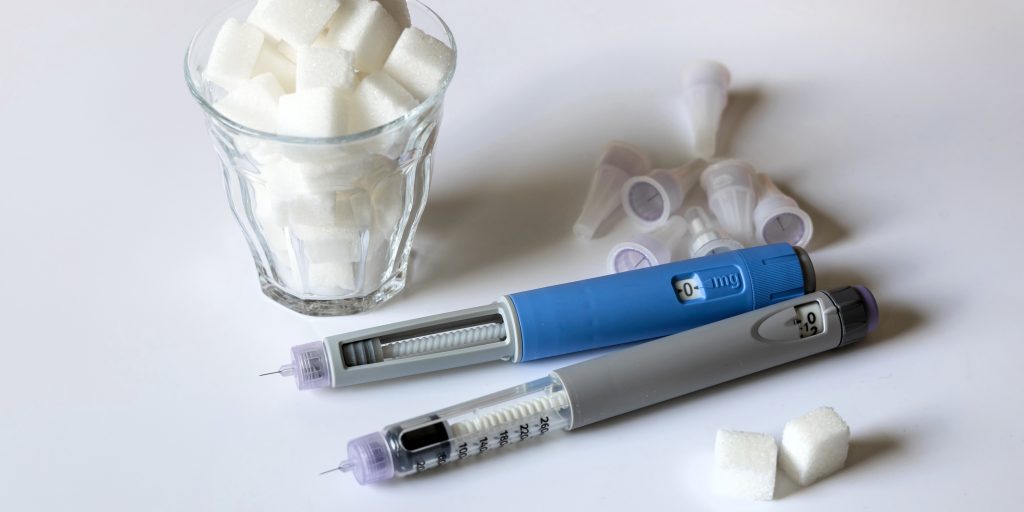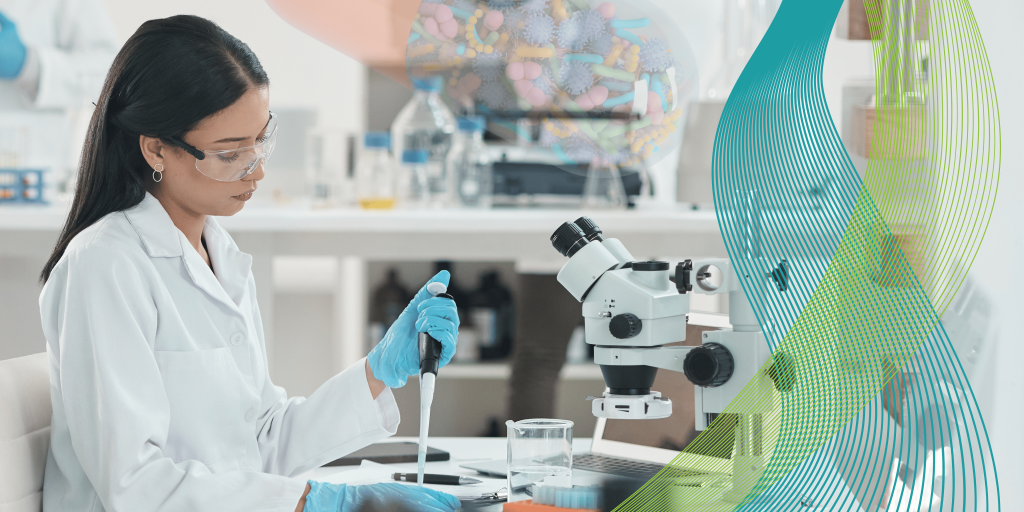Accelerating Therapeutic & Diagnostic Discoveries
The human microbiome comprises dynamic communities of microbes that colonize the body. Our guts, skin and other regions of the body harbour trillions of microbes. It is a comprehensive array of microorganisms that provides a variety of metabolic functions and molecular signals to maintain proper health.
Your microbiome is essentially the genes of all the microbiota combined. The various functions of our microbiome are plenty, ranging from digesting essential nutrients and fibre to helping us with our wellbeing (including our brain health).

The microbiome plays an important role in controlling our immune system, they constantly communicate with our immune cells and affects how our body responds to infection. Our microbiome can also provide colonization resistance from dangerous pathogens such as Clostridium difficile (a type of bacteria that can cause colitis, a serious inflammation of the colon).
Traditionally, microbiome products (from supplements to medicine) have been associated with the digestive system. In recent years, there is a growing trend among consumers who are looking at microbiome-based products that are relevant beyond the digestive system.
The Growing Trend in Microbiome Research
In 2010, there were 1,177 publications on the microbiome, which increased to 6,964 in 2015. In 2020, there were over 20,867 different publications on microbiome therapeutics. There is also a growing number of clinical trials on microbiome therapies. In 2010, there were 31 studies open in the microbiome space. In 2015, that number increased to 271. In 2020, it reached 632.
Public awareness about the human microbiome and its potential has also increased. A survey conducted by Impacts.Ca involving 600 individuals (60% from the US, 40% from Europe) found that:
- 2/3 are using microbiome products
- 75% think that the digestive system is still central to microbiome therapeutics
- 50% of participants expressed interest in the benefits related to immunity
- 25% mentioned weight loss
- 16% talked about hair growth and articulation pain
Current Microbiome Therapies
Microbial therapies for certain autoimmune disorders already exist in the form of faecal microbial transplants (FMT), which involves taking stool samples from healthy individuals, isolating the gut microbes, and giving them to patients via a pill or enema.
In April 2021, Najwa El-Nachef, MD, an associate professor of medicine, found that some patients respond much better to FMT than others, with a few reporting improvements in inflammatory skin and joint conditions as well. This shows that identifying the best patients for microbiota-based therapy is crucial to developing more targeted treatments, which brings us to the next step: applying the microbiome in precision medicine.
Precision Medicine
We all know that individualized medical therapies are aimed towards maximal efficacy. It has accelerated therapeutic and diagnostic discoveries that incorporate comprehensive patient profiles from demographics, family history and traditional laboratory data to next-generation data (such as human genomic, metabolomic, and proteomic readouts).

Implementation of next-generation sequencing to profile the entire microbiota has accelerated the study of the networks of microbes, the genomic content of which far outnumbers a patient’s genome. In short, microbiome research can reveal treatment opportunities for a myriad of diseases.
For example, a recent study by Zhu et al. demonstrated how precision editing of the gut microbiota may be used as a treatment option for patients with gastrointestinal inflammatory disease.
Currently, clinical research on the microbiome mostly revolves around its connection with autoimmune disorders such as rheumatoid arthritis, Crohn’s disease and multiple sclerosis (MS). These disorders altogether affect 24 million Americans.
The ever-increasing understanding of how the microbiome affects our health (and how we respond to disease) suggests that the human microbiome has the potential in providing new approaches in precision medicine. A benefit of the microbiome in this regard is the ease of manipulation and delivery of therapeutics aimed at modulating microbiome functions.
Continued research on the organisms and functions that affect disease and their variability among individuals is required to fully exploit the potential use of the microbiome in precision medicine.
Recent Collaborations & Partnerships:
Vedanta Biosciences & Pfizer, Inc.
In January 2021, Pfizer has made a USD 25 million investment in Vedanta Biosciences, a clinical-stage company developing a new category of microbiome therapies for immune-mediated diseases. They are currently conducting a Phase 2 study of their leading candidate VE202 in treating inflammatory bowel disease (IBD).

IBD has a daily, chronic impact on as many as 1.6 million Americans, and with cases on the rise in the U.S., patients urgently need new therapeutic options.
VE202 is a first-in-class orally-administered investigational live biotherapeutic product (LBP) consisting of a defined bacterial consortium.
Evolve BioSystems and Janssen Research & Development
In March 2020, Evolve BioSystems (specializing in the gut microbiome) announced a collaboration with Janssen Research & Development, LLC, one of the Janssen Pharmaceutical Companies of Johnson & Johnson, to conduct a clinical study in children at risk for developing atopic dermatitis (eczema).

The study aims to investigate whether their candidate (a special probiotic for infants) can reduce the development of early childhood atopic dermatitis, which is implicated in asthma, allergic rhinitis and food allergies. A specific gut bacterium, Bifidobacterium longum subspecies infantis (activated B. infantis EVC001, marketed as Evivo®) is being studied to combat this prevalent pediatric skin disorder.
Atopic dermatitis is an immunological disease condition where 60% of cases are present in infants at the age of one year. It has been implicated in predisposing children to a range of pediatric health conditions ranging from food allergies to asthma.
These individuals also have an increased risk of other conditions associated with inflammation, such as inflammatory bowel disease and rheumatoid arthritis, and are at increased risk of attention-deficit/hyperactivity disorder and depression.
To put things in perspective, atopic dermatitis affects up to 20% of children. The annual cost burden of this condition in the US exceeds $5 billion.
uBiome and L’Oréal
In March 2019, L’Oréal announced a partnership between its Technology Incubator and Silicon Valley-based uBiome, the leader in microbial genomics, to continue its longtime research into skin microbiome (one of many functions is that it provides an important barrier to our skin).
L’Oréal began exploring the skin microbiome over a decade ago and has published 50 papers on the subject since 2006. Their findings include the link between microbiome, skin barrier function, and immune responses as well as the evolution of the microbiome on ageing skin.
This collective research has contributed to the launch of several skincare products across their cosmetics division since 2013.
Conclusion
The microbiome therapeutics market is set to grow and mature, with more involvement from Big Pharma companies and increased awareness among healthcare providers, patients and consumers on the benefits of applied microbiome in health and medicine. Recent trends suggest that microbiome therapeutic products are becoming more attractive, more mainstream. With Big Pharma companies expanding their presence in microbiome therapeutics, the field continues to gain credibility.
Sources:
- https://genomemedicine.biomedcentral.com/articles/10.1186/s13073-018-0525-6
- https://www.ucsf.edu/news/2021/06/420911/microbiome-medicine-scientists-harness-bodys-bugs-treat-asthma-ms-and-more
- https://www.genengnews.com/commentary/point-of-view/four-major-trends-shaping-the-microbiome-therapeutics-market/
- https://www.vedantabio.com/news-media/press-releases/detail/2740/vedanta-biosciences-announces-25-million-investment-from
- https://www.prnewswire.com/news-releases/evolve-biosystems-inc-announces-collaboration-with-janssen-to-study-the-impact-of-b-infantis-evc001-in-the-reduction-of-atopic-dermatitis-301030643.html
- https://www.prnewswire.com/news-releases/loreal-announces-partnership-with-microbial-genomics-leader-ubiome-to-advance-new-research-into-the-skin-microbiome-300809003.html




